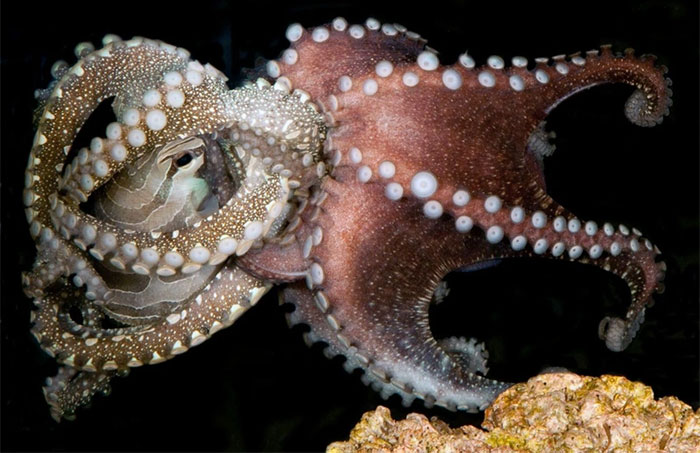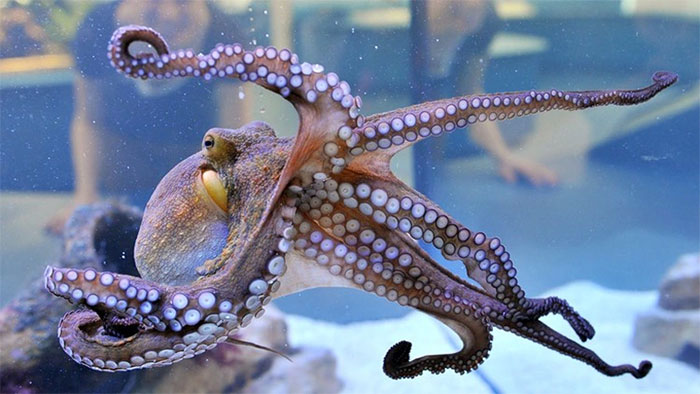Find out why the octopus 'commits suicide' after having sex with its partner
Both male and female octopuses go through a process of "going crazy" just before they take their own lives. This is probably one of the strangest deaths ever discovered.
Octopus is a species that is always orphaned from a very young age. That's because after the mother octopus lays eggs, it begins to stop eating and violently destroys its own body. A few months later, the male octopus suffered the same fate.

After mating, both male and female octopuses undergo a process that causes them to end their lives after about 2 months.
The short and grim life of the octopus has long raised a big question mark for scientific research. In 1944, science first hypothesized that mating had somehow hit the "self-destruct" button inside these organisms. However, the above argument is still controversial and causes headaches for scientists.
Now, after nearly 80 years, that vague hypothesis has finally been cleared up. Researchers recently discovered that mating appears to change several key cholesterol-based biochemical pathways into different hormones in octopuses.
"We know that cholesterol is important from a dietary perspective, as well as in various signaling systems in the body," explains Z. Yan Wang, a molecular biologist at the University of Chicago.
"It's involved in everything from cell membrane flexibility to hormone production, but it's surprising to see that it also plays a part in the process of creating life cycles in octopuses."
By studying the period when an octopus is about to "commit suicide", which is also after mating, the researchers found higher levels of activity in certain genes that control sex hormones, insulin and metabolism. cholesterol metabolism.

Both male and female octopuses go through a process of "going crazy" just before they die.
All three of these molecules inadvertently interfered with the octopus's central nervous system, leading to the signals that trigger death foretold. Or, perhaps it was simply the accumulation of these molecules in the octopus's body that caused them to die, as is the case with humans.
It is remarkable that both male and female octopuses seem to go through a process of "going crazy" shortly before death. Even more interesting, the researchers also found a similar gene structure in several species of rodents.
According to Wang, it is a very interesting discovery to see the similarities between animals with such completely different biological mechanisms and habitats.
In the future, Wang and her colleagues hope that they will analyze it more closely to find out why octopuses have evolved to have a painful death, and follow the cycle already established. This strange arrangement.
- Giant octopus is not mated because it is easy to eat mates
- 'Scanning the brain' to find the right partner
- Ships traveling LADEE prepare
- Huge octopus attacks divers on the seabed
- Octopus - one of the smart species does not use the brain
- Why do so many celebrities find death?
- Detecting octopus 'super small' at sea
- The genius of the ocean? Please call the octopus name!
- Training octopus into the world's first photographer
- Video: Found strange octopus near Hawaii
- The little-known dark secret of the octopus has now been discovered by science
- Scientists absolutely warn against raising octopus
 Surprised: Fish that live in the dark ocean still see colors
Surprised: Fish that live in the dark ocean still see colors Japan suddenly caught the creature that caused the earthquake in the legend
Japan suddenly caught the creature that caused the earthquake in the legend A series of gray whale carcasses washed ashore on California's coast
A series of gray whale carcasses washed ashore on California's coast Compare the size of shark species in the world
Compare the size of shark species in the world